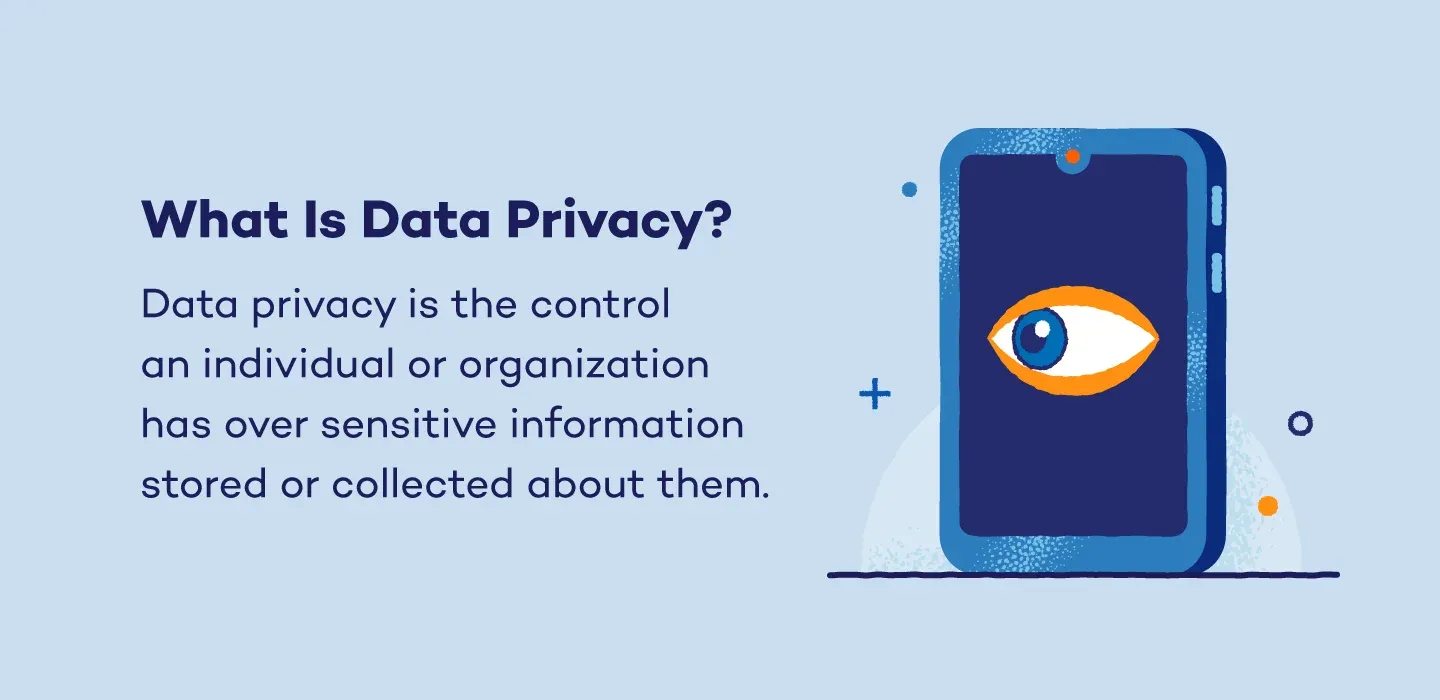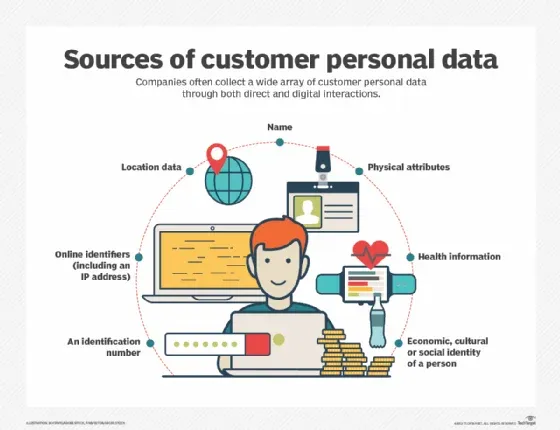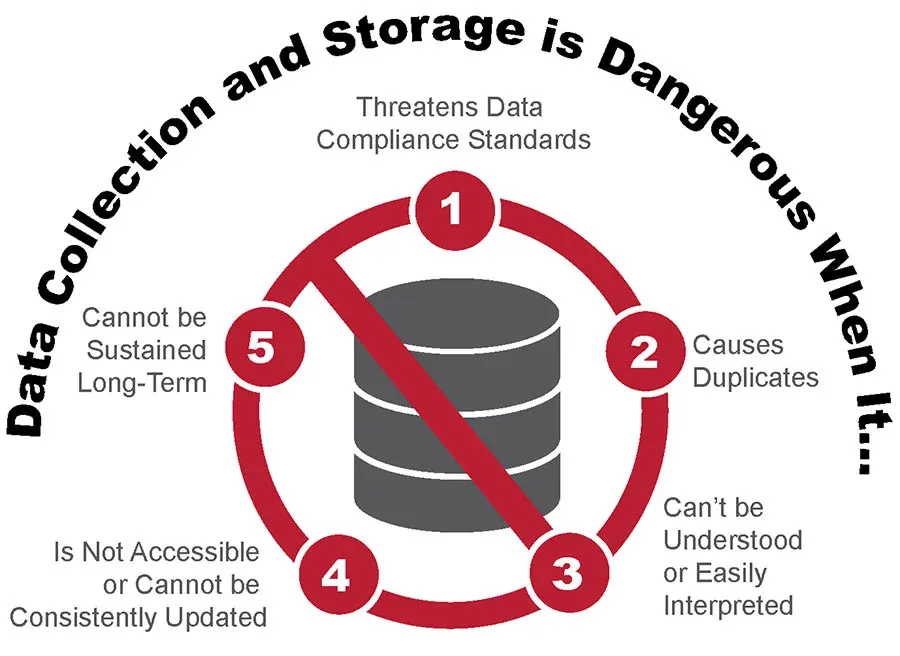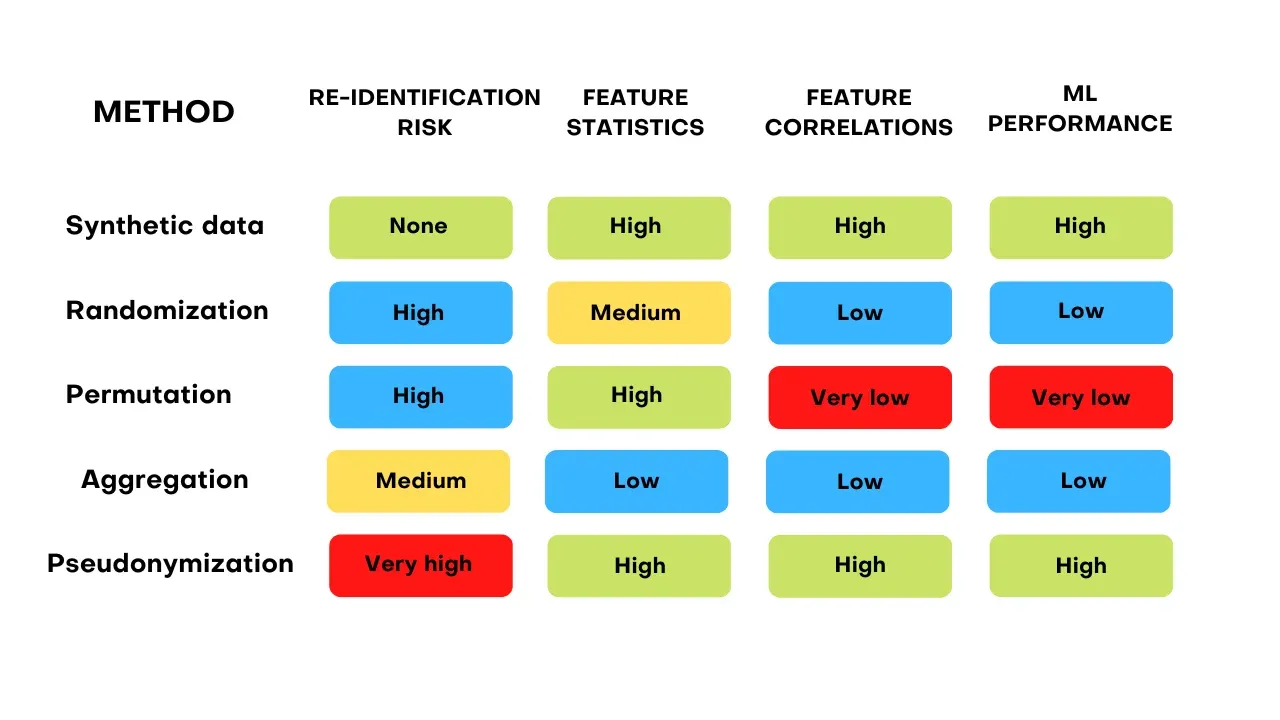Your personal data is valuable. Companies want it.
But what happens after they get it? Do you really know how businesses use your information?
Do they keep it private? Can you trust them? Many consumers are rightfully concerned.
Data collection impacts you. But there are rules and ways to stay safe.
This blog breaks down key data privacy and ethics topics. You’ll learn the regulations protecting your data.
Understand how companies should collect, store, and analyze customer information properly.
We’ll explore concerns around targeted ads and techniques to anonymize data. Read on to get informed.
So, bear the privacy pledge and stay aware of your data privacy rights. See how ethics in analytics matters.
Let’s dive in and shed light on this critical issue.
What is Data Privacy?

Data privacy refers to individuals' right to keep their personal information confidential.
It involves protecting sensitive data and preventing unauthorized access, use, disclosure, disruption, modification, inspection, recording, or destruction of information.
Overview of Data Privacy Regulations
Data privacy regulations, like the General Data Protection Regulation (GDPR) and the California Consumer Privacy Act (CCPA), have been introduced to protect individuals' personal information.
GDPR, implemented in Europe, sets strict rules for how organizations collect, use, and store personal data. Similarly, CCPA provides California residents with control over their personal information.
These regulations aim to ensure transparency, accountability, and consent in data handling, regardless of the business's geographical location.
For example, marketing analytics teams working in regions with local privacy statutes—such as New York City—face evolving legal expectations alongside global frameworks like GDPR and CCPA. In these cases, consulting a data privacy law firm with expertise in New York's unique regulatory landscape can provide essential guidance on lawful data processing, consent management, and breach response protocols tailored to city-specific mandates.
Implications of Non-Compliance
If companies do not follow the privacy rules, there can be big problems for them.
They may have to pay huge fines for mistakes. People might not trust the company as much or want to do business with them.
Customers could be upset and take legal action. Not protecting privacy as they should is a big risk. It can cause financial losses and problems running the business.
Companies that don't keep customer data safe could face serious setbacks.
Importance of Data Privacy for Consumers
Keeping personal information private is not just a rule that companies must follow. It is also something that everyone should be able to do.
When a person's private details are not kept safe properly by a company, bad things could happen like someone stealing their identity or doing fraud.
If companies understand and protect people's privacy well, it will make customers feel better about sharing their information. It allows people to choose what happens to their own data and feel safer when talking to companies online.
Companies that make privacy a high priority will have customers who trust them more.
This leads to better relationships between customers and companies and customers staying loyal to those companies.
Now, let us see how to collect and store customer data in marketing analytics.
Collecting and Storing Customer Data

When companies collect and keep customer information, it's important to be open, get permission, and keep the data safe.
Let's talk about why companies need to be honest with customers about what information they take and how they use it.
It's also important for companies to get the OK from customers before collecting their data.
We should discuss the dangers that happen if people access customer data it's not supposed to, like if hackers steal it.
Companies must protect private information so it doesn't get into the wrong hands.
Transparency and Consent in Data Collection
Transparency and consent are essential elements of ethical data collection.
Organizations must be clear and upfront about the types of data they collect, how it is used, and who has access to it.
This includes informing customers about the purpose and legal basis for data processing and providing options for opting out or withdrawing consent.
Transparent data collection builds trust and allows individuals to make informed decisions about sharing their personal information.
Secure Storage and Protection of Customer Data
Once collected, customer data must be stored securely to prevent unauthorized access and data breaches.
Implementing robust security measures, like encryption, firewalls, and access controls, is crucial for maintaining data integrity.
Regular backups and disaster recovery plans should also be in place to minimize the risk of data loss.
By safeguarding customer data, businesses demonstrate their commitment to privacy and establish trust with their customers.
Risks Of Data Breaches And Potential Consequences

Data breaches pose significant risks to businesses and customers alike. In a breach, sensitive customer information, such as names, addresses, and financial details, can be exposed to cybercriminals.
This may result in financial loss, identity theft, and reputational damage for affected individuals.
Businesses that experience data breaches may face legal consequences, loss of customer trust, and the need for costly remediation efforts.
Proactive measures, such as regular security audits, employee training, and implementing strong data protection protocols, are essential to mitigate the risks associated with data breaches.
After knowing the steps for collecting and storing data, let us know how to analyze the customer data.
Analyzing Customer Data
Businesses have access to vast amounts of customer data. This data can provide valuable insights and help organizations make informed decisions.
However, analyzing customer data comes with ethical considerations and challenges, such as ensuring data accuracy and reliability and finding the right balance between personalized marketing and privacy concerns.
Additionally, targeted advertising, driven by behavioral tracking and retargeting, raises consumer privacy concerns.
Let's see these topics to understand the implications and complexities of analyzing customer data.
Ethical Considerations in Data Marketing Analysis
When analyzing customer data, businesses must navigate ethical considerations to protect privacy and maintain trust.
It's essential to use data consistent with customer expectations and comply with relevant privacy laws.
Ensuring data collection and use transparency, obtaining consent, and giving customers control over their information are key ethical principles to follow.
Businesses should use anonymization techniques to protect personally identifiable information and establish clear policies for handling data to maintain ethical standards.
Ensuring Data Accuracy and Reliability
Data accuracy and reliability are crucial for meaningful analysis and decision-making. Businesses need to establish robust data quality processes to ensure data is accurate, complete, and up to date.
This involves implementing data validation methods, performing regular data audits, and addressing inconsistencies or errors.
By maintaining high data quality standards, businesses can trust the insights derived from their analysis and make informed decisions.
Balancing Personalized Marketing with Privacy Concerns
Personalized marketing analytics has become increasingly popular, allowing businesses to tailor their messaging and offerings to specific customer segments.
However, it is vital to balance personalized marketing tactics and privacy concerns. Customers expect personalized experiences, but they also value their privacy.
To achieve this balance, businesses should obtain explicit customer consent to collect and use their data for personalized marketing.
Providing opt-out options and transparency about data usage can help build trust and ensure privacy concerns are respected.
Now, let us see targeted advertisements and consumer privacy.
Targeted Advertising and Consumer Privacy
Targeted advertising is a marketing approach that involves delivering personalized ads based on a user's behavior, interests, or demographic information.
While it offers many benefits for businesses, it raises concerns about consumer privacy. Let's explore the world of targeted advertising and its implications.
Behavioral Tracking and Retargeting
Behavioral tracking involves monitoring a user's online activities, such as website visits, clicks,
and purchases, to understand their interests and preferences.
This data is then used to deliver targeted ads more relevant to the individual. Retargeting takes it further by displaying ads to users who have previously shown interest in a product or service.
While these techniques can improve ad effectiveness and conversion rates, they raise concerns about privacy and data collection practices.
Addressing Customer Concerns About Personalized Ads
Many consumers are concerned about the invasion of privacy and potential misuse of their data when it comes to targeted advertising.
To address these concerns, businesses should prioritize transparency and provide clear information on how data is collected, used, and shared for advertising purposes.
Giving users control over their preferences and providing opt-out mechanisms can alleviate privacy concerns and demonstrate a commitment to consumer choice and privacy.
Benefits and Drawbacks of Targeted Advertising
Targeted advertising enables businesses to reach the right audience more effectively and improve campaign performance by delivering personalized, relevant ads.
It can also enhance the overall user experience by showcasing products and services that align with individual preferences.
However, there are drawbacks to consider. Ad fatigue, where users become overwhelmed by repeated ads, is a common concern.
Additionally, there is the potential for unintentional bias or discrimination based on collected data.
Striking a balance between personalization and privacy is essential for targeted advertising to be effective and ethical.
Suggested Reading:
Customer Segmentation: Enhance Marketing Efficiency with Data
Data Anonymization and Aggregation

Data anonymization and aggregation techniques play a crucial role in safeguarding personal information while allowing businesses to derive valuable insights.
Let's explore these techniques and understand the balance between accuracy ethics in marketing analytics and privacy needs.
Techniques for Anonymizing Customer Data
Anonymizing customer data involves removing or modifying personally identifiable information in a way that makes it impossible to identify the individual.
There are several techniques commonly used for this purpose, such as:
Data masking: This technique involves replacing sensitive data with fictitious or altered values. For example, replacing real names with random identifiers or masking email addresses.
Generalization: Generalization involves substituting sensitive data with more generalized or less specific values. For example, they may replace exact age with age brackets or round off geographic coordinates.
Pseudonymization: Pseudonymization involves replacing identifiable information with pseudonyms or unique identifiers that are not directly linked to the original data. This allows for analysis while maintaining privacy.
By implementing these techniques, businesses can protect personal information and comply with privacy regulations while still gaining valuable insights from the anonymized data.
Importance of Data Aggregation for Privacy Protection
Data aggregation refers to combining individual data points into broader, summarized datasets.
This technique helps protect privacy by reducing the risk of identification and allowing analysis at a more general level.
Aggregated data obscures specific individuals' information while still providing meaningful insights for businesses. It allows organizations to identify trends, patterns, and group characteristics without compromising individual privacy.
Balancing the Accuracy of Marketing Analytics with Privacy Needs
While data anonymization and aggregation techniques protect privacy, it's crucial to strike the right balance between privacy and accuracy in marketing analytics.
As personally identifiable information is removed or generalized, there is a potential loss of granularity in the data. Businesses must carefully consider the impact of data anonymization and aggregation on the accuracy of their marketing analytics.
Striking a balance between privacy protection and maintaining analytical value requires thoughtful consideration and careful implementation of these techniques.
Conclusion
Companies need to respect people's privacy when using their information.
They must be clear about how data is collected and keep it safe. Some ways to do this are anonymizing details and grouping data.
This helps businesses learn useful things without knowing private facts about anyone. It is important to balance privacy with still getting helpful insights.
Companies should give people choices about their data and ads. If they are open and honest, customers will trust that their information is in good hands.
Frequently Asked Questions (FAQs)
How does data privacy impact marketing analytics?
Data privacy profoundly influences marketing analytics, requiring adherence to regulations, consent-based data collection, and secure data handling to maintain consumer trust while leveraging data effectively for insights.
What ethical concerns arise in marketing analytics?
Ethical concerns encompass consumer consent, data transparency, avoiding biases in targeting, and safeguarding sensitive information, demanding responsible data practices in marketing analytics.
Why is consumer consent crucial in marketing analytics?
Consumer consent ensures data collection aligns with ethical norms, respects privacy rights, and fosters trust, legitimizing the use of consumer data in marketing analytics strategies.
How can marketers balance data utilization and consumer privacy?
Marketers can strike a balance by adopting transparent data policies, anonymizing data when possible, offering opt-in/opt-out choices, and prioritizing consumer data protection in analytics practices.
What role do regulations play in ethical marketing analytics?
Regulations like GDPR and CCPA mandate ethical data collection, processing, and usage, holding marketers accountable and emphasizing consumer ethics in marketing analytics.



